Books on consciousness
A list of books relating to the hard problem of consciousness. Regularly updated cos I keep finding new stuff all the time.
A list of books relating to the hard problem of consciousness. Regularly updated cos I keep finding new stuff all the time.
2020
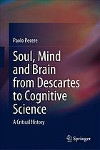 Paolo Pecere
Paolo Pecere
Soul, Mind and Brain from Descartes to Cognitive Science: A Critical History
(Springer 2020)
Pecere assesses the contributions of early philosophers and scientists on brain, consciousness and cognition, and relates them to modern researchers in physiology, psychology, neuroscience and philosophy of mind. The first historical overview of the brain–consciousness problem, connecting the work of Descartes, Locke, Kant, Freud, and others, to current research. See Springer | Amazon | Google
 Mark Siderits et al. (eds.)
Mark Siderits et al. (eds.)
Buddhist Philosophy of Consciousness: Tradition and Dialogue
(Brill 2020)
This book explores a variety of different Buddhist approaches to consciousness by philosophers in classical India and China that developed out of the Buddhist theory of non-self. These approaches are worth examining because they may represent novel approaches to many questions that have featured in recent debates in consciousness studies. See Brill | Amazon | Google
 Jan Westerhoff
Jan Westerhoff
The Non-Existence of the Real World
(Oxford 2020)
Does the ‘real world’ really exist? Westerhoff raises a series of challenges to the notion of such a world. He questions the distinction between an external and internal world, the existence of an ontological foundation that grounds the existence of all worldly entities, and the existence of an ultimately true theory that provides a final account of all there is. See Oxford | Amazon | Google
 John Cottingham
John Cottingham
In Search of the Soul: A Philosophical Essay
(Princeton 2020)
The concept of the soul has been a recurring area of exploration since ancient times. From Socrates and Augustine to Darwin and Freud, Cottingham takes readers on a concise, accessible journey into the origins of the soul in Western philosophy and culture, and examines how the idea has developed throughout history to the present. See Princeton | Amazon | Google
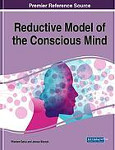 Wieslaw Galus & Janusz Starzyk
Wieslaw Galus & Janusz Starzyk
Reductive Model of the Conscious Mind
(IGI Global)
The authors contend (1) that the emergence of consciousness does not require detailed knowledge of the structure and morphology of the brain, (2) that the biological structure of natural brains fulfills the necessary conditions for consciousness, and (3) that artificial creatures imitating natural brains can meet these conditions. See IGI Global | Amazon | Google
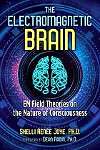 Shelli Renée Joye
Shelli Renée Joye
The Electromagnetic Brain: EM Field Theories on the Nature of Consciousness
(Inner Traditions 2020)
In this scientific exploration of the origin of consciousness, Joye explores twelve credible theories, each published by prominent professionals with extensive scientific credentials, that describe how electricity in the form of electromagnetic fields is the living consciousness that runs through the brain. See Inner Traditions | Amazon | Google
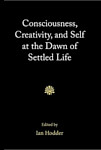 Ian Hodder (ed.)
Ian Hodder (ed.)
Consciousness, Creativity, and Self at the Dawn of Settled Life
(Cambridge 2020)
Some scholars have recently argued that the human mind underwent a cognitive revolution in the Neolithic. This claim has been tested at the Neolithic site of Çatalhöyük in Turkey and other contexts in the Middle East. Collectively, the authors of this volume argue that there is in fact little evidence for an internal cognitive revolution during the Neolithic. See Cambridge | Amazon | Google
 Peter Godfrey-Smith
Peter Godfrey-Smith
Metazoa: Animal Life and the Birth of the Mind
(Farrar, Straus & Giroux 2020)
Following the evolutionary paths of a glass sponge, soft coral, banded shrimp, octopus, and fish, then moving on to the world of insects, birds, and primates, Metazoa investigates the evolution of subjective experience with the assistance of far-flung species, bridging the gap between mind and matter, and addressing the vexing philosophical problem of consciousness. See FS&G | Amazon | Google
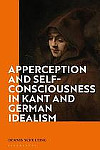 Dennis Schulting
Dennis Schulting
Apperception and Self-Consciousness in Kant and German Idealism
(Bloomsbury 2020)
This highly engaging study provides a subtle and intelligent interpretation of Kant’s concept of transcendental apperception. It sheds welcome light on Kant’s significant debt to Leibniz and Wolff and highlights Kant’s profound influence on his successors, Reinhold, Fichte and Hegel. An eminently readable and thought-provoking study. See Bloomsbury | Amazon | Google
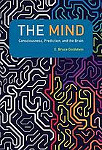 E. Bruce Goldstein
E. Bruce Goldstein
The Mind: Consciousness, Prediction, and the Brain
(MIT 2020)
An accessible and engaging account of the mind and its connection to the brain. Starting with two central questions—what is the mind? and what is consciousness?—Goldstein leads readers through topics that range from popular conceptions of the mind to the wiring system of the brain. Throughout, he draws on the latest research, explaining its significance and relevance. See MIT | Amazon | Google
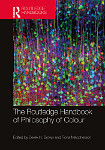 Derek H. Brown & F. Macpherson (eds.)
Derek H. Brown & F. Macpherson (eds.)
The Routledge Handbook of Philosophy of Colour
(Routledge 2020)
This handbook contains twenty-nine specially commissioned contributions by leading philosophers and is organized into six parts: The Importance of Colour to Philosophy; The Science and Spaces of Colour; Colour Phenomena; Colour Ontology; Colour Experience and Epistemology; Language, Categories, and Thought. See Routledge | Amazon | Google
 Sami Pihlström
Sami Pihlström
Why Solipsism Matters
(Bloomsbury 2020)
Not just an historical review of solipsism and some of its key philosophers but an entirely new account of the idea. Pihlström shows how solipsism forces us to rethink fundamental assumptions concerning subjectivity, objectivity, realism vs. idealism, relativism, as well as key topics such as responsibility, death and mortality. See Bloomsbury | Amazon | Google
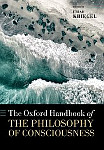 Uriah Kriegel (ed.)
Uriah Kriegel (ed.)
The Oxford Handbook of the Philosophy of Consciousness
(Oxford 2020)
The most comprehensive overview of current philosophical research on consciousness. Featuring contributions from prominent experts in the field, it explores the wide range of types of consciousness there may be, the many psychological phenomena with which consciousness interacts, and the ultimate relationship between consciousness and physical reality. See Oxford | Amazon | Google
 A. S. Barwich
A. S. Barwich
Smellosophy: What the Nose Tells the Mind
(Harvard 2020)
Barwich interviews experts in chemistry, neuroscience, psychology, and perfumery and asks a simple question: what does the nose tell the brain and how does the brain understand it? Accounting for the sense of smell upsets theories of perception philosophers have developed. Smellosophy offers a new understanding of how the brain represents sensory information. See Harvard | Amazon | Google
 Matthew Cobb
Matthew Cobb
Smell: A Very Short Introduction
(Oxford 2020)
Cobb describes the latest research on smell in humans and other mammals, insects and fish. He looks at how smell evolved, how animals use it, and introduces the reader to olfactory science and the neurobiology of smell. He ends by considering future treatments for smell disorders, and speculating on the role of smell in a world of robots. See Oxford | Amazon | Google
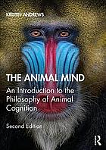 Kristin Andrews
Kristin Andrews
The Animal Mind: An Introduction to the Philosophy of Animal Cognition
(Routledge 2020, 2nd edition)
The philosophy of animal minds addresses profound questions about the nature of mind and the relationships between humans and other animals. In this revised and updated text, Andrews assesses the essential debates in animal cognition and the philosophy of mind, citing historical and empirical data and case studies throughout. Original edition 2014. See Routledge | Amazon | Google
 Carolyn Dicey Jennings
Carolyn Dicey Jennings
The Attending Mind
(Cambridge 2020)
Attention is a topic of importance in philosophy with links to some of the deepest philosophical problems. Yet, in the past century it was largely ignored within analytic philosophy, while the topic of consciousness became central. This book is one of several recent works that have sought to bring attention back into the fray. See Cambridge | Amazon | Google
 Shaun Gallagher
Shaun Gallagher
Action and Interaction
(Oxford 2020)
The first book to combine embodied and enactive approaches to action theory, together with social cognition and critical social theory. Gallagher offers us a new understanding of action as a social phenomenon, drawing on evidence from phenomenology, empirical studies of development, ecological psychology, and studies of communicative and narrative practices. See Oxford | Amazon | Google
 Matthew Cobb
Matthew Cobb
The Idea of the Brain: The Past and Future of Neuroscience
(Basic Books 2020)
For millennia, thinkers and scientists have tried to understand what the brain does. Yet, despite many astonishing discoveries, we still have only the vaguest idea of how the brain works. Cobb traces how our conception of the brain has evolved over the centuries and shows us the complex processes that drive science along with the forces that have shaped our marvelous brains. See Basic Books | Amazon | Google
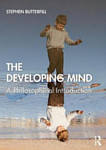 Stephen Butterfill
Stephen Butterfill
The Developing Mind: A Philosophical Introduction
(Routledge 2020)
The development of children’s minds raises fundamental questions from how we come to know basic aspects of the world like objects and actions to how we come to grasp mental states. Butterfill introduces and examines such philosophical questions and considers the implications of scientific breakthroughs for the philosophy of developmental psychology. See Routledge | Amazon | Google
 Harry Redner
Harry Redner
Quintessence of Dust: The Science of Matter and the Philosophy of Mind
(Brill | Rodopi 2020)
Redner argues for a science of matter and a philosophy of mind based on emergence. Mind emerges from matter through five essential stages, in an approach that comes close to Spinoza. The “mind as machine” thesis, artificial intelligence and cognitivism are criticised. The book advocates a philosophic synthesis of the natural sciences, social sciences and humanities. See Brill | Rodopi | Google
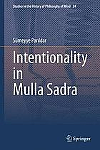 Sümeyye Parıldar
Sümeyye Parıldar
Intentionality in Mulla Sadra
(Springer 2020)
This book reframes various parts of Sadrian theories of sense perception and mental existence around Brentano’s problem of intentionality, yielding a refreshed reading of the philosopher Mulla Sadra. Parıldar argues that, for Sadra, intentionality, intentional object, agent, and reality, are different versions of the same reality. See Springer | Amazon | Google
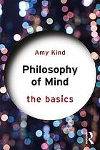 Amy Kind
Amy Kind
Philosophy of Mind: The Basics
(Routledge 2020)
A concise introduction to fundamental philosophical questions about the mind. Examines issues concerning consciousness, thought and emotion, and addresses key questions such as: What is the nature of the mind?, What is the relation between the mind and the brain?, Can machines have minds?, and, How will future technology impact the mind? See Routledge | Amazon | Google
 Ryan Hickerson
Ryan Hickerson
Feelings of Believing: Psychology, History, Phenomenology
(Lexington Books 2020)
In this provocative and illuminating book, Hickerson demonstrates that philosophers as diverse as Hume, Descartes, Husserl, and William James all treated believing as feeling. He argues that doxastic sentimentalism, therefore, is considerably more central to modern epistemology than philosophers have traditionally recognized. See Lexington Books | Amazon | Google
 Anik Waldow
Anik Waldow
Experience Embodied: Early Modern Accounts of the Human Place in Nature
(Oxford 2020)
That humans are embodied entails that we are responsive and causally determined like other animals. While this makes us part of the causal fabric of nature, it questions our ability to act as free, rational agents. Waldow reveals how the early moderns responded to this challenge and offers a new perspective on the centrality of experience in comprehending our place in nature. See Oxford | Amazon | Google
 Robert Audi
Robert Audi
Seeing, Knowing, and Doing: A Perceptualist Account
(Oxford 2020)
Perception is a major concern of both epistemology and the philosophy of mind. Two important aspects of perception have however been underexplored: its relevance to understanding a priori knowledge and its role in human action. Audi provides a full-scale account of perception, a theory of the a priori, and an account of how perception guides action. See Oxford | Amazon | Google
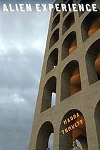 Maura Tumulty
Maura Tumulty
Alien Experience
(Oxford 2020)
Tumulty argues that one can sometimes be alienated from a perception in the way that one can sometimes be alienated from a desire. This has implications for many philosophical debates that tend to assume otherwise and illuminates how we think about self-control, bias, cognitive penetration, and representationalist perceptual theories. See Oxford | Amazon | Google
 B. Brogaard & D. E. Gatzia (eds.)
B. Brogaard & D. E. Gatzia (eds.)
The Epistemology of Non-Visual Perception
(Oxford 2020)
Most research on the epistemology of perception has focused on visual perception. This volume is the first to focus on hearing, touch, taste, and cross-sensory experiences. Drawing on recent studies of emotion, perception, and decision-making, it sheds new light on whether perception can yield justified beliefs and how to characterize those beliefs. See Oxford | Amazon | Google
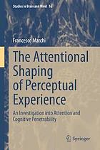 Francesco Marchi
Francesco Marchi
The Attentional Shaping of Perceptual Experience
(Springer 2020)
This monograph presents a clear account of when and how attentional processes can shape perceptual experience. The argument is based on the prediction-error minimization model of the mind. The author believes that the topic of attention should take a more central role in the debate about the influence of cognition on perception. Inside, he shows how this can be possible. See Springer | Amazon | Google
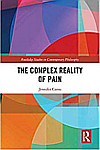 Jennifer Corns
Jennifer Corns
The Complex Reality of Pain
(Routledge 2020)
This book argues that pain, though real, is not an appropriate object of scientific generalisation nor an appropriate target for medical intervention. Each pain experience is complex and idiosyncratic in a way which undermines scientific utility. Provides an overview of dominant models of pain and develops a novel position on its nature. See Routledge | Amazon | Google
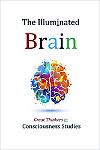 David Christopher Lane (ed.)
David Christopher Lane (ed.)
The Illuminated Brain: Great Thinkers in Consciousness Studies
(Mt. San Antonio College 2020)
In the last century or so, the study of consciousness has attracted many brilliant thinkers from a wide range of disciplines. The following essays briefly explore the life and work of pioneers in the field, including Giulio Tononi, the Churchlands, Noam Chomsky, Timothy Leary, Terence McKenna, and Jean Pierre Changeux, among others. Each entry is written by a separate author. See Amazon
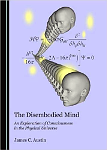 James C. Austin
James C. Austin
The Disembodied Mind: An Exploration of Consciousness in the Physical Universe
(Cambridge Scholars 2020)
Can material things be conscious or is the mind separate from physics? Relying more on scientific evidence than philosophical argument, Austin argues for an objective mind unconnected with the physical. The mind has no effect on the physical domain, but, by free volition, navigates its way through a myriad of configurations that constitute the world we experience. See Cambridge Scholars | Amazon | Google

Soul, Mind and Brain from Descartes to Cognitive Science: A Critical History
(Springer 2020)
Pecere assesses the contributions of early philosophers and scientists on brain, consciousness and cognition, and relates them to modern researchers in physiology, psychology, neuroscience and philosophy of mind. The first historical overview of the brain–consciousness problem, connecting the work of Descartes, Locke, Kant, Freud, and others, to current research. See Springer | Amazon | Google

Buddhist Philosophy of Consciousness: Tradition and Dialogue
(Brill 2020)
This book explores a variety of different Buddhist approaches to consciousness by philosophers in classical India and China that developed out of the Buddhist theory of non-self. These approaches are worth examining because they may represent novel approaches to many questions that have featured in recent debates in consciousness studies. See Brill | Amazon | Google

The Non-Existence of the Real World
(Oxford 2020)
Does the ‘real world’ really exist? Westerhoff raises a series of challenges to the notion of such a world. He questions the distinction between an external and internal world, the existence of an ontological foundation that grounds the existence of all worldly entities, and the existence of an ultimately true theory that provides a final account of all there is. See Oxford | Amazon | Google

In Search of the Soul: A Philosophical Essay
(Princeton 2020)
The concept of the soul has been a recurring area of exploration since ancient times. From Socrates and Augustine to Darwin and Freud, Cottingham takes readers on a concise, accessible journey into the origins of the soul in Western philosophy and culture, and examines how the idea has developed throughout history to the present. See Princeton | Amazon | Google

Reductive Model of the Conscious Mind
(IGI Global)
The authors contend (1) that the emergence of consciousness does not require detailed knowledge of the structure and morphology of the brain, (2) that the biological structure of natural brains fulfills the necessary conditions for consciousness, and (3) that artificial creatures imitating natural brains can meet these conditions. See IGI Global | Amazon | Google

The Electromagnetic Brain: EM Field Theories on the Nature of Consciousness
(Inner Traditions 2020)
In this scientific exploration of the origin of consciousness, Joye explores twelve credible theories, each published by prominent professionals with extensive scientific credentials, that describe how electricity in the form of electromagnetic fields is the living consciousness that runs through the brain. See Inner Traditions | Amazon | Google

Consciousness, Creativity, and Self at the Dawn of Settled Life
(Cambridge 2020)
Some scholars have recently argued that the human mind underwent a cognitive revolution in the Neolithic. This claim has been tested at the Neolithic site of Çatalhöyük in Turkey and other contexts in the Middle East. Collectively, the authors of this volume argue that there is in fact little evidence for an internal cognitive revolution during the Neolithic. See Cambridge | Amazon | Google

Metazoa: Animal Life and the Birth of the Mind
(Farrar, Straus & Giroux 2020)
Following the evolutionary paths of a glass sponge, soft coral, banded shrimp, octopus, and fish, then moving on to the world of insects, birds, and primates, Metazoa investigates the evolution of subjective experience with the assistance of far-flung species, bridging the gap between mind and matter, and addressing the vexing philosophical problem of consciousness. See FS&G | Amazon | Google

Apperception and Self-Consciousness in Kant and German Idealism
(Bloomsbury 2020)
This highly engaging study provides a subtle and intelligent interpretation of Kant’s concept of transcendental apperception. It sheds welcome light on Kant’s significant debt to Leibniz and Wolff and highlights Kant’s profound influence on his successors, Reinhold, Fichte and Hegel. An eminently readable and thought-provoking study. See Bloomsbury | Amazon | Google

The Mind: Consciousness, Prediction, and the Brain
(MIT 2020)
An accessible and engaging account of the mind and its connection to the brain. Starting with two central questions—what is the mind? and what is consciousness?—Goldstein leads readers through topics that range from popular conceptions of the mind to the wiring system of the brain. Throughout, he draws on the latest research, explaining its significance and relevance. See MIT | Amazon | Google

The Routledge Handbook of Philosophy of Colour
(Routledge 2020)
This handbook contains twenty-nine specially commissioned contributions by leading philosophers and is organized into six parts: The Importance of Colour to Philosophy; The Science and Spaces of Colour; Colour Phenomena; Colour Ontology; Colour Experience and Epistemology; Language, Categories, and Thought. See Routledge | Amazon | Google

Why Solipsism Matters
(Bloomsbury 2020)
Not just an historical review of solipsism and some of its key philosophers but an entirely new account of the idea. Pihlström shows how solipsism forces us to rethink fundamental assumptions concerning subjectivity, objectivity, realism vs. idealism, relativism, as well as key topics such as responsibility, death and mortality. See Bloomsbury | Amazon | Google

The Oxford Handbook of the Philosophy of Consciousness
(Oxford 2020)
The most comprehensive overview of current philosophical research on consciousness. Featuring contributions from prominent experts in the field, it explores the wide range of types of consciousness there may be, the many psychological phenomena with which consciousness interacts, and the ultimate relationship between consciousness and physical reality. See Oxford | Amazon | Google

Smellosophy: What the Nose Tells the Mind
(Harvard 2020)
Barwich interviews experts in chemistry, neuroscience, psychology, and perfumery and asks a simple question: what does the nose tell the brain and how does the brain understand it? Accounting for the sense of smell upsets theories of perception philosophers have developed. Smellosophy offers a new understanding of how the brain represents sensory information. See Harvard | Amazon | Google

Smell: A Very Short Introduction
(Oxford 2020)
Cobb describes the latest research on smell in humans and other mammals, insects and fish. He looks at how smell evolved, how animals use it, and introduces the reader to olfactory science and the neurobiology of smell. He ends by considering future treatments for smell disorders, and speculating on the role of smell in a world of robots. See Oxford | Amazon | Google

The Animal Mind: An Introduction to the Philosophy of Animal Cognition
(Routledge 2020, 2nd edition)
The philosophy of animal minds addresses profound questions about the nature of mind and the relationships between humans and other animals. In this revised and updated text, Andrews assesses the essential debates in animal cognition and the philosophy of mind, citing historical and empirical data and case studies throughout. Original edition 2014. See Routledge | Amazon | Google

The Attending Mind
(Cambridge 2020)
Attention is a topic of importance in philosophy with links to some of the deepest philosophical problems. Yet, in the past century it was largely ignored within analytic philosophy, while the topic of consciousness became central. This book is one of several recent works that have sought to bring attention back into the fray. See Cambridge | Amazon | Google

Action and Interaction
(Oxford 2020)
The first book to combine embodied and enactive approaches to action theory, together with social cognition and critical social theory. Gallagher offers us a new understanding of action as a social phenomenon, drawing on evidence from phenomenology, empirical studies of development, ecological psychology, and studies of communicative and narrative practices. See Oxford | Amazon | Google

The Idea of the Brain: The Past and Future of Neuroscience
(Basic Books 2020)
For millennia, thinkers and scientists have tried to understand what the brain does. Yet, despite many astonishing discoveries, we still have only the vaguest idea of how the brain works. Cobb traces how our conception of the brain has evolved over the centuries and shows us the complex processes that drive science along with the forces that have shaped our marvelous brains. See Basic Books | Amazon | Google

The Developing Mind: A Philosophical Introduction
(Routledge 2020)
The development of children’s minds raises fundamental questions from how we come to know basic aspects of the world like objects and actions to how we come to grasp mental states. Butterfill introduces and examines such philosophical questions and considers the implications of scientific breakthroughs for the philosophy of developmental psychology. See Routledge | Amazon | Google

Quintessence of Dust: The Science of Matter and the Philosophy of Mind
(Brill | Rodopi 2020)
Redner argues for a science of matter and a philosophy of mind based on emergence. Mind emerges from matter through five essential stages, in an approach that comes close to Spinoza. The “mind as machine” thesis, artificial intelligence and cognitivism are criticised. The book advocates a philosophic synthesis of the natural sciences, social sciences and humanities. See Brill | Rodopi | Google

Intentionality in Mulla Sadra
(Springer 2020)
This book reframes various parts of Sadrian theories of sense perception and mental existence around Brentano’s problem of intentionality, yielding a refreshed reading of the philosopher Mulla Sadra. Parıldar argues that, for Sadra, intentionality, intentional object, agent, and reality, are different versions of the same reality. See Springer | Amazon | Google

Philosophy of Mind: The Basics
(Routledge 2020)
A concise introduction to fundamental philosophical questions about the mind. Examines issues concerning consciousness, thought and emotion, and addresses key questions such as: What is the nature of the mind?, What is the relation between the mind and the brain?, Can machines have minds?, and, How will future technology impact the mind? See Routledge | Amazon | Google

Feelings of Believing: Psychology, History, Phenomenology
(Lexington Books 2020)
In this provocative and illuminating book, Hickerson demonstrates that philosophers as diverse as Hume, Descartes, Husserl, and William James all treated believing as feeling. He argues that doxastic sentimentalism, therefore, is considerably more central to modern epistemology than philosophers have traditionally recognized. See Lexington Books | Amazon | Google

Experience Embodied: Early Modern Accounts of the Human Place in Nature
(Oxford 2020)
That humans are embodied entails that we are responsive and causally determined like other animals. While this makes us part of the causal fabric of nature, it questions our ability to act as free, rational agents. Waldow reveals how the early moderns responded to this challenge and offers a new perspective on the centrality of experience in comprehending our place in nature. See Oxford | Amazon | Google

Seeing, Knowing, and Doing: A Perceptualist Account
(Oxford 2020)
Perception is a major concern of both epistemology and the philosophy of mind. Two important aspects of perception have however been underexplored: its relevance to understanding a priori knowledge and its role in human action. Audi provides a full-scale account of perception, a theory of the a priori, and an account of how perception guides action. See Oxford | Amazon | Google

Alien Experience
(Oxford 2020)
Tumulty argues that one can sometimes be alienated from a perception in the way that one can sometimes be alienated from a desire. This has implications for many philosophical debates that tend to assume otherwise and illuminates how we think about self-control, bias, cognitive penetration, and representationalist perceptual theories. See Oxford | Amazon | Google

The Epistemology of Non-Visual Perception
(Oxford 2020)
Most research on the epistemology of perception has focused on visual perception. This volume is the first to focus on hearing, touch, taste, and cross-sensory experiences. Drawing on recent studies of emotion, perception, and decision-making, it sheds new light on whether perception can yield justified beliefs and how to characterize those beliefs. See Oxford | Amazon | Google

The Attentional Shaping of Perceptual Experience
(Springer 2020)
This monograph presents a clear account of when and how attentional processes can shape perceptual experience. The argument is based on the prediction-error minimization model of the mind. The author believes that the topic of attention should take a more central role in the debate about the influence of cognition on perception. Inside, he shows how this can be possible. See Springer | Amazon | Google

The Complex Reality of Pain
(Routledge 2020)
This book argues that pain, though real, is not an appropriate object of scientific generalisation nor an appropriate target for medical intervention. Each pain experience is complex and idiosyncratic in a way which undermines scientific utility. Provides an overview of dominant models of pain and develops a novel position on its nature. See Routledge | Amazon | Google

The Illuminated Brain: Great Thinkers in Consciousness Studies
(Mt. San Antonio College 2020)
In the last century or so, the study of consciousness has attracted many brilliant thinkers from a wide range of disciplines. The following essays briefly explore the life and work of pioneers in the field, including Giulio Tononi, the Churchlands, Noam Chomsky, Timothy Leary, Terence McKenna, and Jean Pierre Changeux, among others. Each entry is written by a separate author. See Amazon

The Disembodied Mind: An Exploration of Consciousness in the Physical Universe
(Cambridge Scholars 2020)
Can material things be conscious or is the mind separate from physics? Relying more on scientific evidence than philosophical argument, Austin argues for an objective mind unconnected with the physical. The mind has no effect on the physical domain, but, by free volition, navigates its way through a myriad of configurations that constitute the world we experience. See Cambridge Scholars | Amazon | Google
Menu
 What’s a logical paradox?
What’s a logical paradox? Achilles & the tortoise
Achilles & the tortoise The surprise exam
The surprise exam Newcomb’s problem
Newcomb’s problem Newcomb’s problem (sassy version)
Newcomb’s problem (sassy version) Seeing and being
Seeing and being Logic test!
Logic test! Philosophers say the strangest things
Philosophers say the strangest things Favourite puzzles
Favourite puzzles Books on consciousness
Books on consciousness Philosophy videos
Philosophy videos Phinteresting
Phinteresting Philosopher biographies
Philosopher biographies Philosopher birthdays
Philosopher birthdays Draft
Draftbarang 2009-2024  wayback machine
wayback machine
 wayback machine
wayback machine